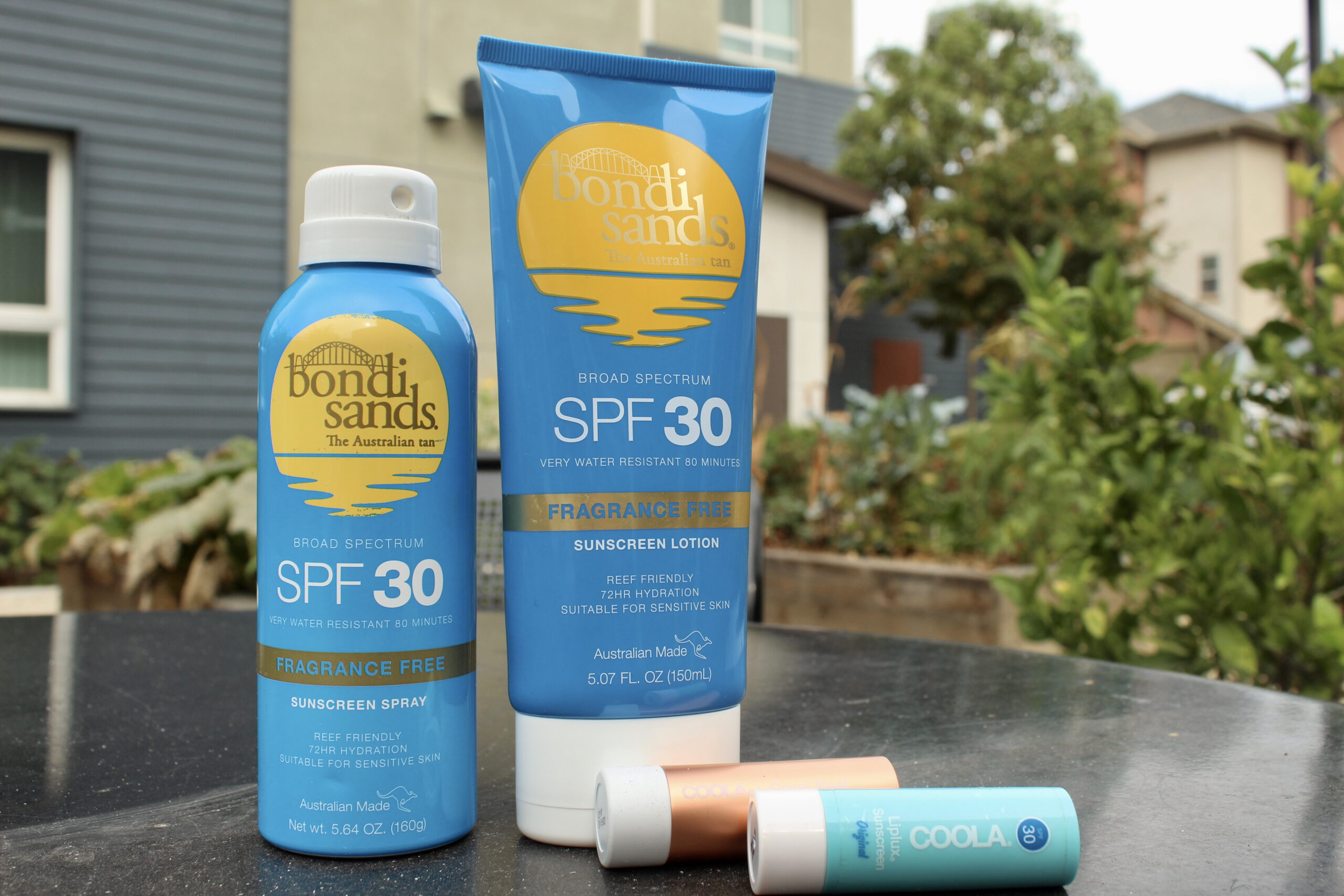The different methods of applying sunscreen include using lotion, spray, and sticks or balms. Photo by Kimberly Resendiz.
By: Yennifer Ho, Staff Reporter
The record-breaking heat wave we just went through might have been positive in one respect: it reminded us to wear sunscreen to prevent sunburn along with other health issues.
Ultraviolet radiation comes from the sun and other sources like tanning beds. It can benefit humans
by providing Vitamin C, but exposure can also be dangerous. UVB rays cause sunburns, skin cancer, skin aging, and snow blindness (a sunburn to your cornea that causes a temporary loss of vision) and can lower your body’s ability to fight illness,” according to the United States Environmental Protection Agency.
CSUDH alumna Angela Le thinks more work should go into informing people about how sunscreen can help guard against those harmful rays. “I think education regarding how it prevents aging and skin cancer should be made more public to the general population since many believe you only need it when you are spending a considerable amount of time outdoors,” she said.
There are a variety of sunscreens that cater to people’s needs including their skin type and age. For instance, there are mineral or chemical sunscreens.
Mineral or natural sunscreens are believed to be safer for humans, but they don’t absorb into the skin as smoothly as chemical sunscreen due to it sitting on top of the surface.
“I tend to look for sunscreens that are chemical based rather than mineral because I’m a darker-skinned individual who doesn’t want to deal with a white cast,” Lashea Burgess, CSUDH senior, said.
White cast from certain sunscreens can occur because the consistency is too thick or the certain ingredients in them including titanium oxide and zinc oxide.
Although she feels like sunscreen is beneficial and a necessity, she doesn’t always wear it and tends to not reapply for further sun protection.
It is recommended that sunscreen should be reapplied every two hours especially when being exposed to sweat and water for continuous protection against UV rays.
“I put sunscreen on my face every morning and I try to reapply when I’m out in the sun all day but it’s not exactly every two hours,” CSUDH sophomore Corrine Judisch admitted.
Many might assume young people like students don’t need sunscreen because they are generally more healthy, but skin cancer can happen at any age. In fact, skin cancer is the most common cancer in the U.S. according to the CDC. Approximately 9,500 people in the U.S. are diagnosed with skin cancer every day.
Besides applying sunscreen, experts including the Mayo Health Clinic, recommend wearing protective clothing, limiting sun exposure, and staying away from tanning beds to help reduce the chance of getting skin cancer.

